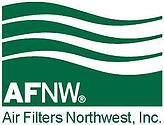Commercial / Office Buildings
Commercial / Office Buildings
Indoor air quality is a major concern to businesses, building managers, tenants, and employees because it can impact the health, comfort, well being, and productivity of building occupants. Most Americans spend up to 90% of their time indoors and many spend most of their working hours in an office environment. Studies conducted by the U.S. Environmental Protection Agency (EPA) and others show that indoor environments sometimes can have levels of pollutants that are actually higher than levels found outside. Pollutants in our indoor environment can increase the risk of illness. Studies show that improving indoor air quality can actually result in higher productivity and fewer lost work days. Both particles and gases entering the airstream adversely affect indoor air quality. Particles are solid substances which are light enough to be

suspended in the air, the largest of which may be visible to the naked eye when sun beams stream into a room. However, smaller particles that you cannot see are likely to be more harmful to health. Particles of dust, dirt, or other substances may be drawn into the building from outside and can also be produced by activities that occur in buildings such as printing, copying, operating equipment, dusting, etc. Gaseous contaminants–not particulates—can often be smelled and come from sources such as tobacco smoke, cleaning solutions, automotive/truck exhaust fumes, industrial gases, paint fumes and other sources. Filtration of both particles and gases is mandatory for good indoor air quality.
Air Filters Supplied by AFNW®...
- substantially improve air quality conditions in the building
- reduce indoor levels of all particulate pollutants inside the building
- remove certain gaseous pollutants from the air stream thus eliminating harsh/harmful odors
- help protect occupants from re-circulated air that has been contaminated or entered through unfiltered openings
- Request Quote for Filtration Solutions
